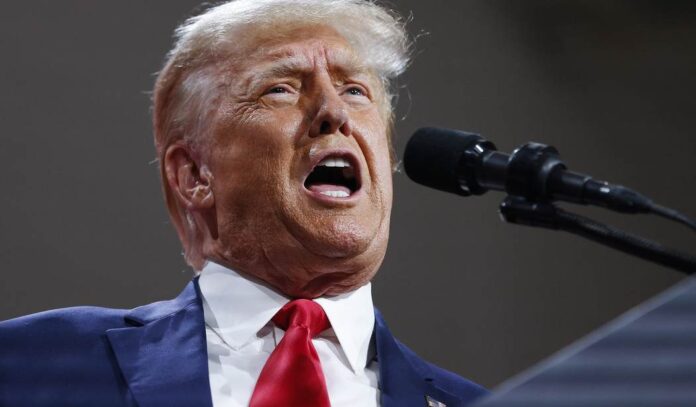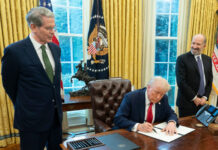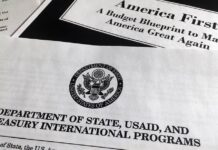Judge Tanya Chutkan has released the details of the gag order she slapped on former President Donald Trump earlier this week. The order is ostensibly intended to preserve the integrity of the upcoming trial in which the former president is facing charges related to trying to overturn the outcome of the 2020 presidential election.
The case has already been fraught with controversy. But when Chutkan issued the order, it added another layer to what is already a politically tinged issue.
The document claims that the order was imposed to ensure that “Extrajudicial Statements Do Not Prejudice These Proceedings.” The court cites Sheppard v. Maxwell to support its argument that it must “protect [its] processes from prejudicial outside interferences.”
The judge argues that the “First Amendment does not override that obligation.”
The order claims that Trump’s past and present public statements about some of the individuals involved in the case against him could intimidate or influence witnesses, prosecutors, and court staff.
Defendant has made those statements to national audiences using language communicating not merely that he believes the process to be illegitimate, but also that particular individuals involved in it are liars, or ‘thugs,’ or deserve death.
In responding to Trump’s lawyer’s contention that imposing this gag order would limit Trump’s ability to campaign as a presidential candidate, the court held that “The defense’s position that no limits may be placed on Defendant’s speech because he is engaged in a political campaign is untenable” and that “this court has found that even amidst his political campaign, Defendant’s statements pose sufficiently grave threats to the integrity of these proceedings.”
The document lays out in more detail the restrictions the court is placing on Trump’s speech:
All interested parties in this matter, including the parties and their counsel, are prohibited from making any public statements, or directing others to make any public statements, that target (1) the Special Counsel prosecuting this case or his staff; (2) defense counsel or their staff; (3) any of this court’s staff or other supporting personnel; or (4) any reasonably foreseeable witness or the substance of their testimony.
The court then highlights the types of statements Trump will still be allowed to make.
This Order shall not be construed to prohibit Defendant from making statements criticizing the government generally, including the current administration or the Department of Justice; statements asserting that Defendant is innocent of the charges against him, or that his prosecution is politically motivated; or statements criticizing the campaign platforms or policies of Defendant’s current political rivals.
The court’s decision on the gag order is a legal tightrope walk, to say the least. It wouldn’t be out of school to suggest that the judge is attempting to limit Trump’s speech as he campaigns for the presidency rather than trying to protect the integrity of the trial. So far, the former president has not made any threatening statements to anyone involved in the proceedings. Moreover, there is no evidence he has attempted to intimidate witnesses, which is already illegal. However, he has savaged the entire circus, criticizing those using the justice system to target him, which is his right.
Trump’s team filed a notice of intent to appeal the order to the U.S. Court of Appeals for the District of Columbia. It would not be surprising to see this one go all the way up to the Supreme Court. But, for now, Trump will have to abide by the order.




